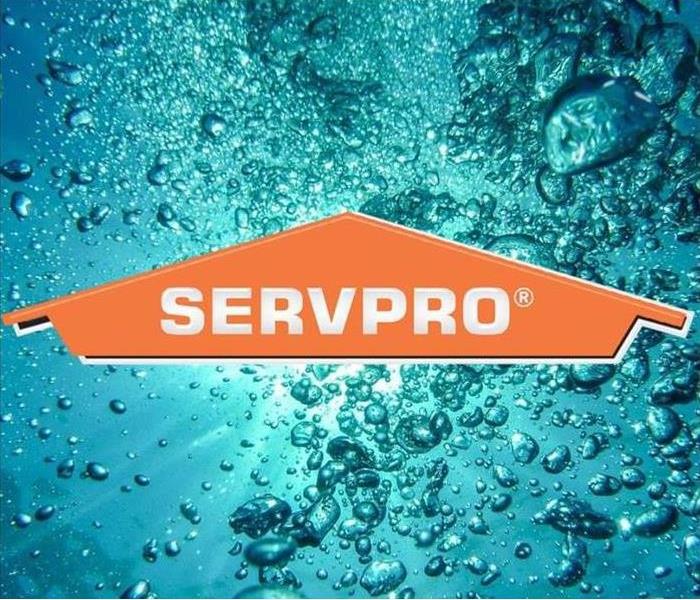Tips for Cleaning Up Water Damage in Your Home
8/29/2022 (Permalink)
It can happen in an instant: A pipe bursts, flooding your home. It's a nightmare scenario for homeowners and renters alike, but it's not all doom and gloom. With the right knowledge and preparation, you may be able to save some of your belongings from water damage. Here are five tips on cleaning up water damage in your home:
Do not enter affected areas if electrical outlets, switches, circuit breakers and electrical equipment are exposed to water. Always avoid electrical shock hazard.
Once you're sure the electrical power has been turned off, do not enter areas where you can see or suspect water damage to wiring and equipment. Water may be hiding behind walls and in other places that are hard to see, so always assume there is a risk of electrical shock when working in such conditions.
Shocking yourself on an exposed wire could lead to a heart attack or even death. Call a professional who knows how to restore lost power safely.
Don't try using a wet vacuum cleaner because it can cause electrocution and burn out the motor on your machine. If you own a shop vac (which is not recommended) make sure that it's unplugged before attempting use if possible since there's less chance for electrocution that way, but don't rely on this method exclusively since most shop vac have motors with very little insulation between them that still could cause problems if submerged in water for long periods of time - especially salt water which conducts electricity much easier then fresh!
Do not use your household vacuum cleaner to remove water; this could cause electrical shock or damage to the vacuum cleaner.
If your home has been affected by floodwaters, do not use your household vacuum cleaner to remove water; this could cause electrical shock or damage to the vacuum cleaner. Instead, use a wet/dry vac. Remove water from the affected area as quickly as possible and then call in a professional.
Do not turn on ceiling fixtures if ceiling is wet, and keep out of rooms where ceilings are sagging from retained water.
If you have any ceiling fixtures in your home, don't turn them on if the ceilings are still wet. You could cause a short circuit and cause yourself more damage. If it has been a few hours or longer, you can safely turn on ceiling lights without causing any harm to yourself or your home.
If you see that one side of the ceiling is sagging due to retained water from the flood, stay out of that room until it's fixed.
Avoid contaminated objects, including soaked furniture and debris. Cover your nose and mouth with a cold cloth or dust mask when entering an area with a strong odor of gas or chemicals.
- Don't enter the area if electrical outlets, switches, circuit breakers or electrical equipment are exposed to water
- Don't use your household vacuum to remove water
- Don't turn on ceiling fixtures if ceiling is wet
- Don't enter areas where ceilings are sagging
Water damage can occur in your home at any time, but knowing what you should do can save you valuable time and money!
Water damage is one of the most common reasons for a home inspection. Many homes are built on stone foundations and have basements that are below ground level, meaning water can enter through cracks in the foundation or where pipes enter the basement ceiling/floor. Water leaks from plumbing fixtures such as toilets and faucets can also cause problems if left unattended for too long.
The best thing to when it comes to water damage is prevention. That means checking regularly to make sure all drains are clear of debris or hair clogs which may prevent them from draining properly, keeping your gutters clean so they catch falling rainwater and directing it away from your foundation before it has a chance to seep into cracks or leaky windowsills around doors leading outside (if left unchecked this type of problem could lead not only into other rooms but also outdoors. Ensuring all windowsills aren't cracked before replacing them with new ones so no more moisture get trapped inside after being exposed directly under bright sunlight all day long (this will help keep mold growth under control).
If you have any questions, please feel free to contact us at any time! SERVPRO of Bismarck is always happy to help out our customers with their home projects!




 24/7 Emergency Service
24/7 Emergency Service
